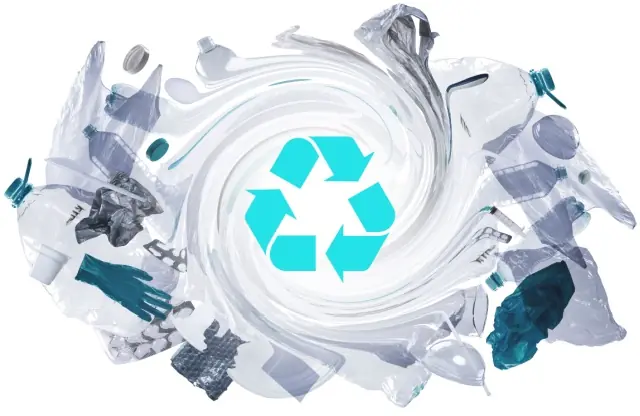Understanding Greenwashing: Truth Behind Eco-Friendly Claims
 Share
Share
 Copy Url
Copy Url

How often have you come across the phrase "going green" lately? Probably more times than you can recall. We've reached a point of green fatigue, and greenwashing practices might be to blame.
Greenwashing refers to companies making misleading claims about their environmental impact to appear more sustainable. It's a growing concern as businesses focus on corporate social responsibility. Yet, not all claims are honest. This misleads consumers, making it harder to trust which brands are genuinely eco-friendly. In this article, we'll explore the definition of greenwashing and how to spot it. We'll also look at the impact and consequences for both organizations and consumers.
So why do companies engage in greenwashing? We'll dive into this question and uncover the motives behind these deceptive practices. Additionally, we'll highlight popular international brands, fashion brands, and Indian companies accused of greenwashing. Finally, we'll provide tips on how to avoid greenwashing in your business and discuss policies that protect against it. Stay with us as we navigate this complex and important topic.
Greenwashing: Definition
Greenwashing is when companies make misleading environmental claims to seem more eco-friendly than they are. The term "greenwashing" was first used in 1986 by environmentalist Jay Westerveld. He saw a hotel asking guests to reuse towels to save the environment while the hotel was expanding in ways that harmed the environment. This contradiction led Westerveld to expose how companies use deceptive practices to appear sustainable without making a significant environmental impact.
The definition of greenwashing involves creating a false impression or providing misleading information about a company's environmental practices. This practice takes advantage of the demand for sustainable products without genuinely trying to be sustainable. It often includes vague terms, unverified claims, and selective disclosure. These highlight positive aspects while hiding negative ones.
Greenwashing can mislead consumers, making it hard to know which products truly reduce environmental impact. Companies might promote small green initiatives while continuing harmful practices. For example, a company might advertise using recycled materials but still have a large carbon footprint from its manufacturing processes. A recent European Union assessment found that 42% of green claims were exaggerated or false. There has been a significant rise in greenwashing incidents in sectors like banking and finance.
How to Identify Greenwashing
Greenwashing can be tricky to spot, but there are clear signs that can help you identify it. By understanding these tactics, you can make more informed decisions and support genuinely sustainable practices.
1. Check for Vague Terminology
Companies often use broad and ambiguous terms like "eco-friendly" or "natural" without providing specific details. If a product or service makes grand claims without explaining their meaning, it might be greenwashing. For instance, if a product claims to be "sustainable" but lacks certifications or clear evidence, it's worth being skeptical.
2. Look for Hidden Trade-Offs
Some companies highlight a positive change while ignoring the negative impacts. For example, a company might promote using recycled materials while its environmental practices remain harmful. This selective disclosure can mislead consumers about the true sustainability of a product or service.
3. Demand Proof
Authentic green claims are usually backed by third-party certifications. Labels such as USDA Organic or Green Seal provide credibility. It might be greenwashing if a company claims to make its products with organic materials but doesn’t show certifications.
4. Watch for Irrelevant Claims
Sometimes, companies make technically true but irrelevant claims. For example, advertising a product as "CFC-free" when CFCs have been banned for decades doesn't add real value. These claims can mislead consumers into thinking a product is more environmentally friendly than it is.
5. Beware of Overinflated Phrases
Companies may use technically accurate phrases but give a skewed perception. For instance, stating that a product is "made with 50% more recycled fibers" might mean an increase from 2% to 3%, which is not significant but sounds impressive.
6. Examine Symbolic Actions
Some companies perform small, highly visible actions to appear green while their overall operations remain harmful. For example, donating to environmental causes while continuing to pollute significantly. These symbolic actions do little to reduce their environmental footprint but help improve their image.
Understanding these tactics helps in making informed choices and supporting genuine sustainability efforts. As greenwashing becomes more common, being vigilant and knowledgeable is crucial to avoiding its effects and promoting true corporate environmental responsibility.
Impact and Consequences of Greenwashing for Organizations
Greenwashing can have serious negative consequences for organizations. One major impact is reputational damage. When consumers learn a company has misled them about its sustainability practices, trust is broken. This loss of trust can decrease customer loyalty, lower sales, and harm the brand image.
Legal risks are also significant. Regulatory bodies worldwide are scrutinizing greenwashing practices more closely. Companies found guilty may face hefty fines and penalties.
Greenwashing can also harm sustainability reporting. Companies may manipulate their reporting frameworks to seem more eco-friendly. This misrepresentation undermines the credibility of sustainability reporting. It can lead to further regulatory scrutiny and penalties.
Financially, greenwashing can deter investors. It can lead to a loss of investor confidence. Investors need reliable data to make decisions. Greenwashing compromises the integrity of corporate environmental disclosures. This can reduce investment and cause financial instability for the company.
Additionally, greenwashing affects the broader market by creating a cynical consumer base. When consumers repeatedly encounter greenwashed products, they become skeptical of all green claims. This skepticism can undermine genuine sustainability efforts across industries. This makes it harder for companies committed to reducing greenhouse gas emissions and other environmental impacts to gain consumer trust.
In summary, greenwashing can cause reputational damage, legal penalties, loss of investor confidence, compromised sustainability reporting, and a skeptical consumer base. Companies must focus on genuine sustainability efforts to avoid these pitfalls and build lasting trust with their stakeholders.
Consequences of Greenwashing for Consumers
Greenwashing can impact consumers, causing various negative effects. When greenwashing occurs, it misleads consumers into thinking they are making environmentally responsible choices. This misrepresentation can result in purchases based on false information. It can be frustrating and disappointing for consumers when they learn the truth.
One major effect of greenwashing is the erosion of consumer trust. False claims about environmental practices undermine trust in both the company and general sustainability messages. Consumers may become skeptical of all green claims. This skepticism makes it hard for genuinely sustainable companies to gain consumer trust.
Greenwashing also hinders efforts to protect the environment. When consumers buy products they believe are eco-friendly, only to find out they are not, it can be disheartening. This deception can reduce the motivation to seek out and support truly sustainable products and companies.
Furthermore, greenwashing can lead to a lack of accountability. Companies that do not disclose accurate information about their environmental practices prevent consumers from making informed choices. This lack of transparency stops consumers from supporting businesses that focus on sustainability.
To conclude, greenwashing misleads consumers, erodes trust in green claims, hinders environmental protection, and reduces accountability for companies. To combat this, consumers must be vigilant. They should demand transparency and evidence from companies about their sustainability practices. This ensures their choices positively impact the environment and support genuine sustainability efforts.
Why Do Companies Engage in Greenwashing?
Greenwashing is a deceptive marketing practice where companies falsely portray their products or practices as environmentally friendly. Here are several reasons why companies engage in greenwashing:
1. Consumer Demand for Sustainability
Companies greenwash to meet the growing consumer demand for environmentally friendly products. Many consumers prefer to buy from brands that claim to prioritize environmental issues. This demand pressures companies to appear green, even if they aren’t making major changes.
2. Competitive Advantage
Companies use greenwashing to gain a competitive edge. By making false or exaggerated environmental claims, companies attract eco-conscious customers away from competitors. This deceptive marketing boosts sales and market share without the costs of genuine sustainability efforts.
3. Cost of Genuine Sustainability
Implementing real, effective environmental practices can be expensive and time-consuming. Companies might find it easier and cheaper to engage in greenwashing. This allows them to reap the benefits of appearing green without investing in large changes.
4. Lack of Standardized Metrics
Measuring and verifying environmental impact can be complex. There are no standardized metrics to check sustainability efforts. This makes it easier for companies to manipulate data and make unsubstantiated claims without being easily caught.
5. Weak Regulatory Frameworks
Inconsistent and weak regulations across different regions allow companies to engage in greenwashing. Many sustainability disclosures are voluntary. There is often little enforcement to ensure accuracy. This lack of stringent regulations allows companies to make misleading claims without significant risk of penalty.
6. Positive Public Relations
Greenwashing can enhance a company’s public image. Companies use green claims to improve their reputation, attract positive media coverage, and build goodwill among consumers. This positive PR can be beneficial, even if the claims are false.
Understanding why companies engage in greenwashing is crucial. This highlights the need for stronger regulations and better consumer awareness. It ensures companies disclose accurate information about their environmental practices and genuinely address environmental issues.
5 Popular International Companies Facing Greenwashing Allegations
Many companies face allegations of greenwashing, which misleads consumers about their true environmental impact. These brands often use deceptive marketing to enhance their image. They do this without making large efforts to address environmental issues. Below are five well-known international brands accused of doing so.
1. Volkswagen
Volkswagen faced a major greenwashing scandal a few years ago. In 2015, it was found that they had installed software in diesel vehicles to cheat emissions tests. They promoted their cars as low-emission and eco-friendly. But, the cars were emitting pollutants above legal limits. This scandal damaged their reputation and highlighted the need for stricter regulations on sustainability claims.
2. McDonald’s
McDonald’s has been accused of greenwashing by promoting their switch to paper straws. Critics argue that focusing on small, visible changes distracts from bigger issues like waste and carbon emissions. This creates a misleading perception of the company's environmental impact.
3. Lufthansa
Lufthansa has faced accusations of greenwashing over its "Green Fare" flights. These pricier tickets include 100% carbon offsetting. However, critics argue that this creates a false sense of security for passengers. They claim that the offsetting measures, such as using sustainable aviation fuels and contributing to climate protection projects, do not adequately address the environmental impact of flying. This controversy highlights the ongoing challenges. Achieving genuine sustainability in the aviation industry remains difficult.
4. IKEA
IKEA has been criticized for greenwashing its wood sourcing. The company claims to use sustainable materials. However, investigations have found instances of illegal logging and unsustainable forestry practices. These findings challenge IKEA’s sustainability claims and highlight the importance of transparency and accountability in environmental reporting.
5. Starbucks
Starbucks has faced greenwashing allegations for introducing strawless lids. These lids were marketed as environmentally friendly but used more plastic than the previous combination of straw and lid. Additionally, the company has been accused of false claims about the ethical sourcing of its coffee. These issues raise questions about the authenticity of Starbucks’ sustainability efforts.
5 International Fashion Brands Accused of Greenwashing Practices
Greenwashing is common in the fashion industry, especially among fast fashion brands. These companies often make misleading sustainability claims to appear more eco-friendly. Here are five popular international fashion brands accused of greenwashing. These examples highlight the perception of greenwashing and its impact on environmental issues.
1. H&M
H&M has been repeatedly accused of greenwashing, particularly with its "Conscious" collection. The brand claims to use sustainable materials. However, investigations reveal that these claims are often exaggerated. Critics argue that the collection is only a small part of their production. The brand still relies heavily on unsustainable practices.
2. Zara
Zara promotes its "Join Life" collection as sustainable, claiming to use organic and recycled materials. Yet, critics point out that the brand's fast fashion model and high carbon footprint contradict these claims. The lack of detailed transparency about their supply chain fuels accusations of greenwashing.
3. Uniqlo
Uniqlo has faced greenwashing allegations due to its vague sustainability claims. The brand promotes efforts like using recycled materials but lacks transparency and certification. Its use of synthetic materials and slow progress on environmental targets highlight the gap between its marketing and actual practices.
4. Nike
Nike has been criticized for its "Move to Zero" campaign, which aims for zero carbon and zero waste. Critics argue that the campaign repackages old commitments without offering new, concrete actions. Despite improvements, its use of synthetic materials and continued environmental impact raise questions about the authenticity of its green initiatives.
5. Patagonia
Despite its reputation for sustainability, Patagonia faces scrutiny for using synthetic fibers and recycled ocean plastics. Critics argue these practices do little to reduce plastic pollution. The brand's lack of commitment to eliminating synthetics has led to accusations of greenwashing.
5 Indian Businesses Under Scrutiny for Greenwashing
Greenwashing is fast becoming a big problem in India. Many companies make exaggerated or false environmental claims to appear eco-friendly. This highlights the importance of accurate sustainability reporting in India to ensure transparency and trust. Here are five Indian companies accused of greenwashing.
1. Coca-Cola India
Coca-Cola India has been accused of greenwashing due to its extensive use of plastic packaging. It campaigns to promote recycling. Yet, critics argue that Coca-Cola is one of the largest plastic polluters in India. The company's initiatives often seem to distract from their significant environmental impact.
2. Adani Group
Adani Group has faced accusations of greenwashing related to its coal mining operations. The company promotes its renewable energy projects. But it also continues to expand coal mining activities. This dual approach raises questions about the company's true commitment to sustainability.
3. ITC
ITC markets its products as environmentally friendly, especially its paper and packaging divisions. Critics have criticized the company for not providing clear data on its actual environmental impact. They argue that ITC's sustainability claims lack enough evidence, leading to allegations of greenwashing.
4. Reliance Industries
Critics accuse Reliance Industries of engaging in this practice by promoting "green" initiatives while heavily investing in fossil fuels. Its sustainable marketing efforts sharply contrast with its large-scale oil and gas operations. This raises doubts about the authenticity of its environmental claims.
5. Dabur
Dabur, known for its herbal and natural products, has faced greenwashing allegations. Critics note that despite its marketing, the company uses synthetic chemicals in some products. This gap between the brand's image and its practices raises questions about the truthfulness of its sustainability claims.
These cases, both international and domestic, show how such a practice can mislead consumers and undermine genuine sustainability efforts. They show the need for stricter regulations and greater transparency. This ensures companies address environmental issues honestly and effectively.
How to Ensure Genuine Sustainability in Your Business
Avoiding misleading environmental claims, or "greenwashing," is crucial for building trust and ensuring genuine sustainability. Your business can take practical steps to maintain honesty and transparency in its environmental efforts. These strategies help you communicate, set achievable goals, and support your claims with solid evidence. Put these practices in place to foster a more sustainable business and avoid greenwashing.
1. Use Clear and Specific Language
Use precise language when discussing your environmental efforts. Avoid vague terms like "eco-friendly" or "green." For example, instead of saying a product is "sustainable," explain that it is made from 100% recycled materials. This helps consumers understand exactly what makes your product environmentally friendly.
2. Be Transparent with Your Audience
Be honest about your sustainability efforts, including successes and areas needing improvement. Avoid exaggerating benefits or hiding shortcomings. This builds trust and credibility with your audience, showing your genuine commitment to a positive environmental impact.
3. Set Achievable Goals
Establish realistic and measurable sustainability targets that your business can achieve within a specific timeframe. For example, aim to reduce carbon emissions by a certain percentage each year. Achieving these targets demonstrates your commitment and progress to stakeholders and consumers.
4. Collaborate with Honest Partners
Work with suppliers and partners who are transparent about their environmental practices. Ensure they have sustainable practices and share your commitment to transparency. Partnering with trustworthy organizations strengthens your sustainability efforts and enhances your credibility.
5. Seek Third-Party Verification
Get certification from reputable third-party organizations to confirm your sustainability claims. Certifications like LEED, Fair Trade, or Energy Star verify that your practices meet specific environmental standards. This adds credibility and reassures consumers about the authenticity of your claims.
6. Check Your Supply Chains
Regularly audit your supply chains to ensure all components meet your environmental standards. Check for sustainable sourcing, fair labor practices, and reduced environmental impact. Keeping your supply chain transparent and accountable avoids misleading claims about your products' sustainability.
7. Provide Evidence for Claims
Back up your sustainability claims with solid evidence. Provide data, reports, and case studies detailing the environmental benefits of your products or practices. This builds trust and allows consumers to verify your claims and see the real impact of your efforts.
8. Publish Regular Progress Reports
Regularly publish reports on your sustainability efforts. Keep your audience informed about your progress and any new initiatives. Consistent updates show that your business continuously works towards its environmental goals and is willing to be held accountable.
9. Educate Employees and Customers
Educate your employees and customers about your sustainability efforts and the importance of avoiding misleading claims. Provide training for staff on sustainable practices and transparent communication. Inform customers through marketing materials and customer service channels. This ensures everyone understands and supports your commitment to genuine sustainability.
Policies to Prevent Misleading Environmental Claims
To ensure transparency and trust in green marketing, several policies have been established globally to prevent greenwashing. These measures help companies accurately represent their environmental efforts and maintain credibility. Here are some key policies designed to prevent misleading environmental claims.
1. Green Claims Code (UK)
The UK’s Advertising Standards Agency (ASA) and Competition and Markets Authority (CMA) created the Green Claims Code. It sets rules for advertisers to make sure their environmental claims are truthful, clear, and based on strong evidence. This code helps prevent greenwashing and protects consumers from deceptive marketing.
2. Sustainable Finance Disclosure Regulation (EU)
The EU’s Sustainable Finance Disclosure Regulation (SFDR) aims to increase transparency in sustainable investments. It standardizes the language and labels used in green marketing for investment products. This ensures companies disclose accurate sustainability information. The regulation helps investors make informed decisions and reduces greenwashing in the financial sector.
3. FTC Green Guides (USA)
The Federal Trade Commission (FTC) Green Guides in the USA provide guidelines for making truthful environmental claims. These guides cover claims related to sustainability, certifications, and carbon offsets. They help companies avoid greenwashing by ensuring their claims are clear and supported by evidence.
4. Canadian Code of Advertising Standards
Canada’s Ad Standards Code requires that all advertisements, including those with environmental claims, be accurate, truthful, and supported by reliable evidence. The Competition Bureau enforces guidelines against misleading green marketing. This helps prevent greenwashing by ensuring environmental claims are substantiated and not exaggerated.
5. Misrepresentation Act (Singapore)
Singapore's Misrepresentation Act protects consumers from false environmental claims. It allows consumers to seek damages if they are misled by a company’s green marketing. The Consumer Protection (Fair Trading) Act also addresses unfair business practices, ensuring companies accurately represent their green products.
6. India's Policy to Prevent Greenwashing
In India, the Advertising Standards Council of India (ASCI) released the "Guidelines for Advertisements Making Environmental/Green Claims" to combat greenwashing. These guidelines ensure companies make truthful and substantiated environmental claims, maintaining transparency and trust in green marketing.
These policies collectively ensure honest green marketing and accurate disclosure of environmental efforts, preventing greenwashing and promoting genuine sustainability across industries.
Ensuring Honest Sustainability Reporting with Report Yak
Greenwashing remains a significant challenge in today’s market, misleading consumers and undermining genuine sustainability efforts. Companies engaging in deceptive practices risk damaging their reputation, facing legal penalties, and losing investor trust. Consumers, in turn, find it difficult to trust environmental claims, hindering efforts to protect the environment. To combat this, businesses must adopt transparent and honest practices, setting achievable goals and providing solid evidence for their sustainability claims.
At Report Yak, we specialize in helping clients report their ESG and sustainability efforts accurately. Our award-winning designs in the ESG and Sustainability categories have earned us recognition at the LACP Spotlight Awards. You can view these reports on our Clutch profile. For a wider range of our work, visit our Showcase page, and explore our full list of services on the Services page.
If you’re looking for a unique sustainability report design, call us at 1800 121 5955 (India) or email us at contact@reportyak.com. You can also send us a WhatsApp message or fill out the Contact form with your details, and we’ll get back to you promptly. Let Report Yak help you ensure your sustainability reporting is both effective and trustworthy.
Related Posts
-
How Extended Producer Responsibility in India Impacts Reporting
circular economyenvironmental and social initiatives
+9
Oct 15, 2024Share
Copy Url
The Importance of Closed Loop Systems in Sustainability Reporting
Annual Report designAnnual reports
+8
Oct 4, 2024Share
Copy Url
Circular Economy Approach to Plastic Waste for Sustainability
Sep 25, 2024Share
Copy Url













